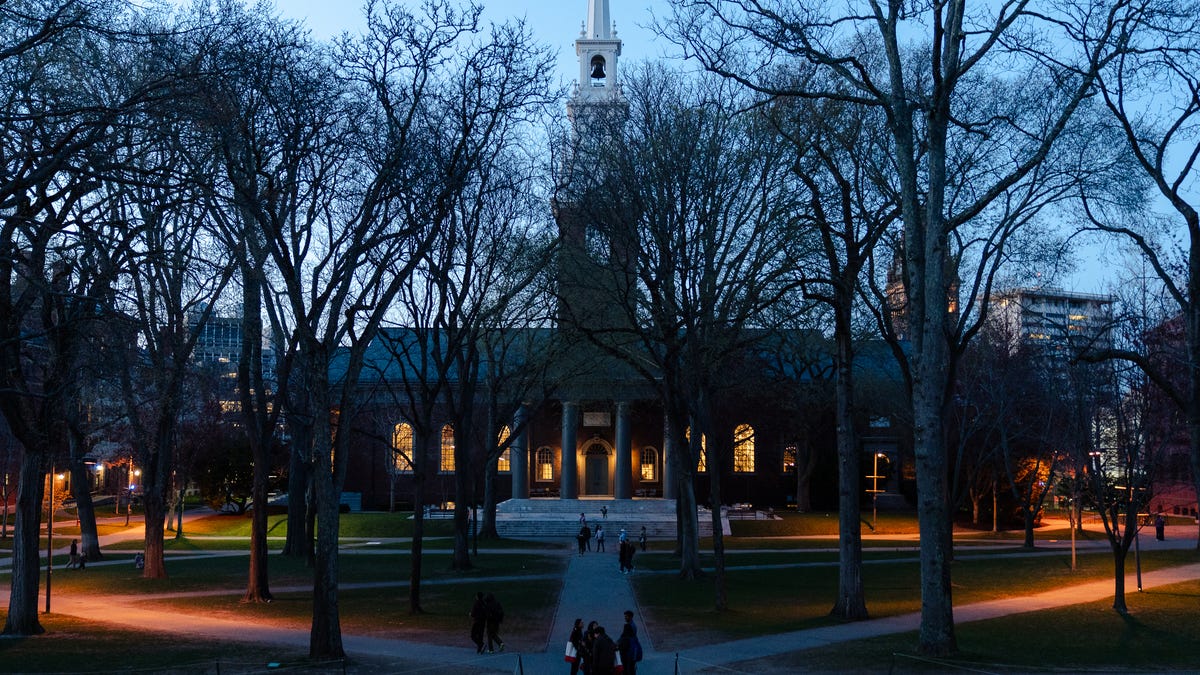‘I am sorry for the moments when we failed to meet the high expectations we rightfully set for our community,’ Alan Garber, Harvard president, said in a statement.
Trump administration to review billions in funding for Harvard
Trump has announced plans to review $9 billion in federal contracts and grants at Harvard University over claims of antisemitism on campus. The administration will be reviewing contracts worth over $255.6 million.
unbranded – Newsworthy
WASHINGTON – As the federal government’s scrutiny of Harvard University intensifies, internal reviews released April 29 by the Ivy League school found evidence of Islamophobia and antisemitism on its campus.
One report revealed that nearly half of Muslim students and staff have felt unsafe on campus since the Israel-Hamas war broke out. The other described instances of Jewish students hiding their identities or taking leaves of absence to avoid harassment. Both reviews offered comprehensive, sometimes contradictory, recommendations, which Harvard’s president, Alan Garber, who is Jewish, said he was committed to taking seriously.
“Harvard cannot – and will not – abide bigotry,” Garber said in a statement.
The findings validate some of the concerns leveled by the Trump administration’s antisemitism task force. The interagency group froze billions of dollars in federal funding for the university on April 14, after Harvard refused to comply with a series of unprecedented demands to overhaul its admissions, hiring and teaching practices.
While the broader impact of the administration’s funding pause remains unclear, the escalating battle has brought many of the university’s key research projects, including studies on Alzheimer’s disease and cancer treatment, to a halt.
Hundreds of college presidents have publicly backed Harvard’s refusal to comply with the demands. Garber has argued the scope of the White House’s directives makes clear the Trump administration doesn’t want to address antisemitism in a “cooperative and constructive manner.”
“Although some of the demands outlined by the government are aimed at combating antisemitism, the majority represent direct governmental regulation of the ‘intellectual conditions’ at Harvard,” he wrote in a public statement on April 14. “No government – regardless of which party is in power – should dictate what private universities can teach, whom they can admit and hire, and which areas of study and inquiry they can pursue.”
Muslim, Arab and Palestinian students ‘abandoned and silenced’
One of the reviews published April 29 uncovered deep fear and anxiety among Muslim, Arab, Palestinian and pro-Palestinian students and staff.
Members of those communities on campus have felt “abandoned and silenced,” the report says. A survey launched in 2024 of more than 2,200 students and staff on campus found that half of Muslim respondents reported they felt physically unsafe on campus (15% of Jewish and 6% of Christian respondents to the same question said they felt unsafe on campus).
More than 90% of Muslim respondents also said they believed they were likely to face academic or professional repercussions for expressing their opinions.
‘Upsetting, at times deplorable’ incidents of antisemitism
Another report released April 29 outlined key areas of concern, including unbalanced teaching standards and discrimination, for Jewish students and faculty. According to the findings, many of those students and faculty members have withdrawn from campus life since Oct. 7, 2023, when Hamas’ attacks in Israel catapulted Gaza into a deadly conflict.
Following interviews, surveys and listening sessions, Harvard concluded that some classes and study abroad programs at the university have offered a “disturbingly one-sided education on Israel-Palestine.” Accounts shared in the report describe instructors canceling classes in solidarity with pro-Palestinian protests, along with complaints of an anti-Zionist “monoculture” at the medical school.
“They provide a window into a set of wider problems at the university and in academia writ large,” the findings say.
Responding to questions in the same survey taken by Muslim students and faculty, three-quarters of Jewish students said they were uncomfortable expressing their political opinions on campus.
Those dynamics have led Jewish applicants to turn down admissions offers and medical residencies at Harvard’s hospitals, the report says.
Harassment, fear alter campus life
As prestigious universities like Harvard became a focal point of outside scrutiny last year, external harassment had devastating effects on students, the report says. So-called doxxing trucks, which displayed the faces and phone numbers of pro-Palestinian protesters on vehicles at Harvard and other campuses, prompted death and rape threats.
“In the hundreds of heart-wrenching conversations we had with students, staff, and faculty,” the report on anti-Muslim bias said, “a common theme emerged: ultimately, many feel that no one in leadership cares about them.”
Zachary Schermele is an education reporter for USA TODAY. You can reach him by email at [email protected]. Follow him on X at @ZachSchermele and Bluesky at @zachschermele.bsky.social.
